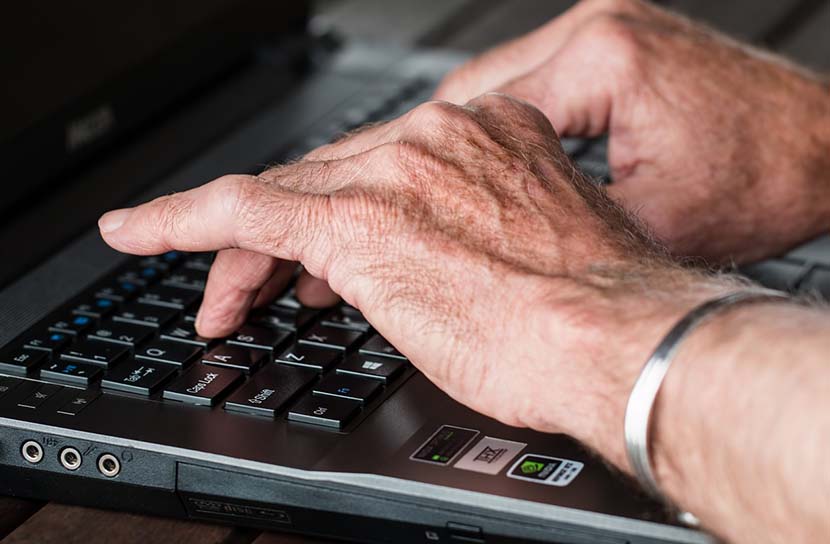Managing Arthritis: Dealing with Pain and Improving Mobility.
Managing arthritis can be challenging, but with the right strategies and guidance from a physiotherapist, you can take control of your condition and lead a fulfilling life.
Understanding Arthritis:
Arthritis is a condition characterized by inflammation and stiffness in one or more joints. There are different types of arthritis, including osteoarthritis, rheumatoid arthritis, and psoriatic arthritis. Osteoarthritis is the most common form, typically caused by wear and tear of the joints over time. Rheumatoid arthritis is an autoimmune disease that affects the joints, while psoriatic arthritis is associated with the skin condition psoriasis.
Common symptoms of arthritis include joint pain, stiffness, swelling, and reduced range of motion. These symptoms can vary in intensity, and they may impact your ability to perform daily activities and affect your overall quality of life.
Seeking Professional Guidance:
When managing arthritis, it is crucial to work closely with healthcare professionals, particularly a physiotherapist. A physiotherapist can provide personalized treatment plans, pain management strategies, and exercises tailored to your specific needs. They will work in collaboration with your healthcare team, which may include rheumatologists or other specialists, to develop a comprehensive plan for managing arthritis.
Pain Management Techniques:
Heat and cold therapy: Applying heat, such as warm compresses or taking warm baths, can help relax muscles and relieve pain. Cold therapy, using ice packs, can reduce inflammation and numb the area, providing temporary relief.
Transcutaneous electrical nerve stimulation (TENS): TENS is a therapy that involves applying low-level electrical impulses to the affected area. This technique can help reduce pain by blocking pain signals and promoting the release of endorphins, the body’s natural painkillers.
Medication and alternative treatments: Consult with your healthcare professional regarding medication options that can help manage arthritis pain. Additionally, alternative treatments like acupuncture/dry needling, massage therapy, and herbal supplements may provide relief for some individuals. However, it is essential to discuss these options with your healthcare provider before incorporating them into your treatment plan.
Exercise for Managing Arthritis:
Regular physical activity is crucial for managing arthritis. Exercise helps improve joint flexibility, strengthen muscles, reduce pain, and enhance overall well-being. Here are some exercise recommendations:
Low-impact exercises: Engage in activities that are gentle on the joints, such as walking, swimming, cycling, and yoga. These exercises provide cardiovascular benefits, promote flexibility, and help maintain a healthy weight, reducing the strain on your joints.
Strengthening exercises: Focus on exercises that target the affected joints and surrounding muscles. Strengthening these muscles can provide better support and stability for the joints, reducing pain and improving mobility. Work with your physiotherapist to develop a customized exercise plan that suits your abilities and goals.
Assistive Devices and Adaptations:
Assistive devices and adaptations can help alleviate pain, enhance mobility, and improve daily functioning. Consider the following options:
Braces and supports: Braces, splints, or shoe inserts can provide support, reduce joint stress, and improve alignment. These assistive devices can help manage arthritis pain and improve joint stability during activities.
Assistive devices: Canes, walkers, or ergonomic tools can assist with daily activities and minimize joint strain. These devices can provide stability and support, making it easier to perform tasks while managing arthritis.
Home modifications: Consider making practical adaptations to your home environment to enhance safety and accessibility. Install grab bars in the bathroom, use raised toilet seats, and add handrails on stairs to minimize the risk of falls and make daily tasks more manageable.
Lifestyle Modifications:
In addition to medical interventions and exercise, lifestyle modifications can play a significant role in managing arthritis. Consider the following:
Weight management: Maintaining a healthy weight is crucial for managing arthritis, as excess weight can put additional stress on the joints. Adopt a balanced diet, rich in fruits, vegetables, lean proteins, and whole grains, and consult with a registered dietitian for personalized guidance.
Stress management: Stress can exacerbate arthritis symptoms. Incorporate stress reduction techniques into your daily routine, such as meditation, deep breathing exercises, or engaging in hobbies and activities that bring you joy.
Balancing rest and activity: Find a balance between rest and physical activity. While it’s essential to remain active, listen to your body and take breaks when needed. Resting allows your joints to recover and prevents overexertion.
Managing arthritis requires a comprehensive approach that includes professional guidance, pain management techniques, exercise, assistive devices, and lifestyle modifications. By working closely with your healthcare team, following the recommendations of your physiotherapist, and making necessary adaptations to your daily life, you can effectively manage arthritis, reduce pain, and improve your overall quality of life. Remember, everyone’s experience with arthritis is unique, so it’s crucial to consult with healthcare professionals for personalized advice and support.
Arthritis pain is awful, but you don’t have to suffer forever! When you visit us at Evolution Health Clinic we will provide options for treating and managing your Arthritis. Speak with one of our physiotherapists or chiropractors and live a better you today.
Author: Colin Sau (Physiotherapist, Evolution Health Clinic)


